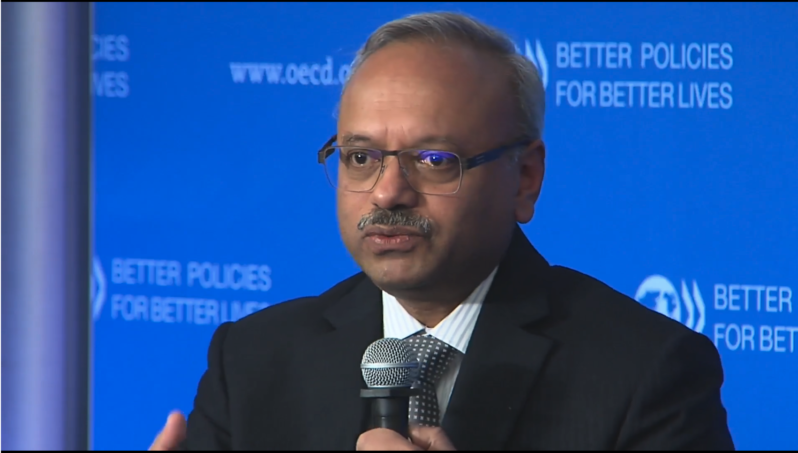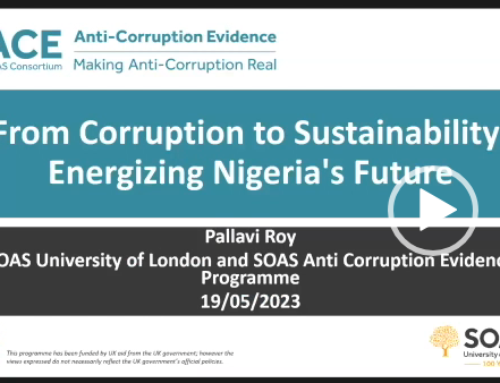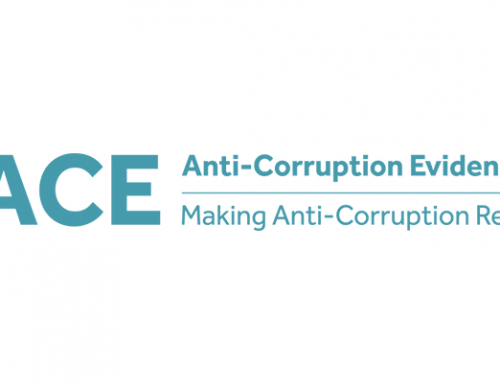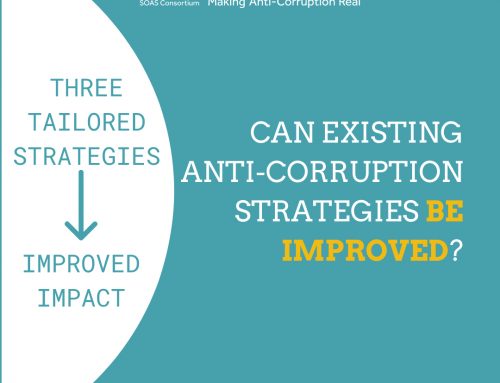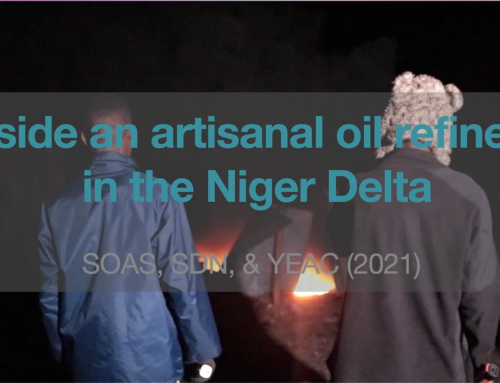What should we understand by the term ‘zero tolerance for corruption’? Mushtaq Khan at the OECD Global Anti-Corruption & Integrity Forum conference put forward the SOAS-ACE analysis in a discussion chaired by Jennifer Lewis of USAID.
In countries where horizontal checks on rule violators are weak, most instances of corruption involve corrupt actors being tolerated or supported by those around and above them. Here, an approach that responds to every instance of corruption by identifying and punishing corrupt individuals is the wrong response. We may identify relatively minor individuals who had no option but to engage in the corruption, and we may fail to understand the systemic drivers of corruption in that activity. More importantly, it may prevent us identifying feasible responses that help to improve the developmental outcome. Instead, ‘zero tolerance for corruption’ should mean that development partners should respond to every instance of corruption by investigating why corruption is happening in that activity or sector and explore whether there are feasible and effective responses that can remove or significantly reduce this corruption to improve developmental outcomes. As an example, Mushtaq discusses the SOAS-ACE research on corruption in skills sector projects that identified feasible responses that could not have been identified if zero tolerance had been limited to punishing individuals.
It is only when there are no feasible responses to a corruption problem that donors and development partners should exit from an activity.
You can watch the recording of the session here: https://www.oecd-events.org/gacif2023/onlinesession/112e2744-c8c7-ed11-9f73-6045bd8890e4


